Discovering the Blues Expression (Jazz at Lincoln Center)
Written by Staff on June 8, 2020
RRX: Within our readership, there’s a real fondness for rock, and most of us are fully aware of the blues roots, figures like Robert Johnson and Howling Wolf being rediscovered and reinterpreted time and again. How is jazz history like this, and how is it different? Where do we see jazz today, outside of its natural genre?
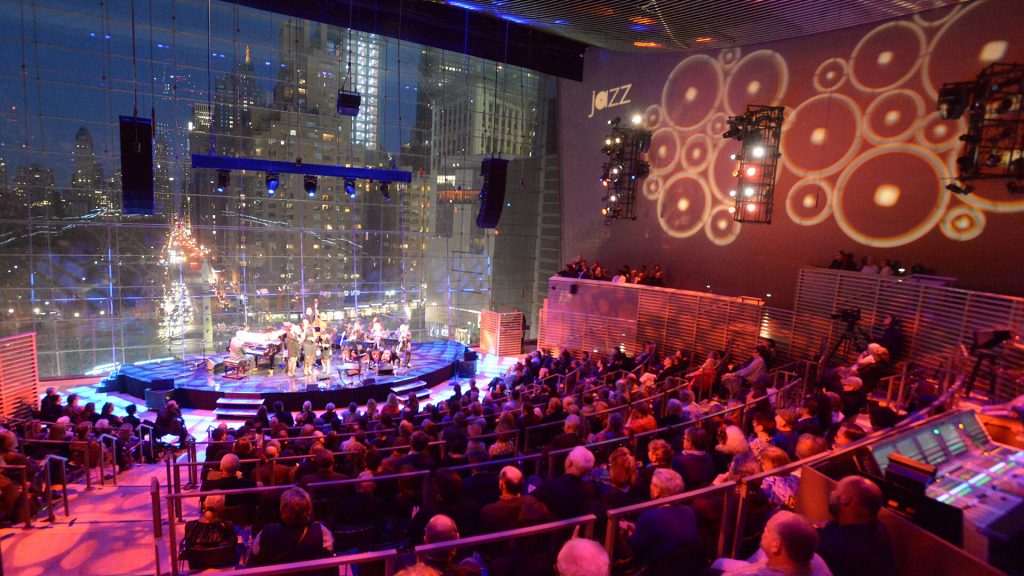
Jazz at Lincoln Center
SH: So what you’re speaking about here is a deep interconnection of something we would call blues expression. It’s the outcome and the product of styles of music that came to the new world from Africa, notably northwest Africa, and created this unique tonality we would call blues expression. So, relating it to what you just said on rock and blues, what I think jazz’s role there is a cousin, a lot of these styles are emerging out of these unique sounds that developed in the New World in the nineteenth century; jazz is one of them. So within that, you can understand jazz’s history and developments the way you would a genre like rock or blues. The idea of earlier styles getting rediscovered, that’s happened in jazz many times. Wonderful examples of that are the early New Orleans and early Chicagoan styles that got a revival in the 1940s, and again in the 1970s tacked on to the ragtime revival that happened as a result of movies like The Sting. We see the music of Louis Armstrong being rediscovered by generations after generations, something Wynton (Marsalis) has also spoken about, of reassessing and relearning what Louis had been doing. And when Wynton himself was coming up. So with that in mind, what jazz at Lincoln Center has said is that all jazz is modern. And this idea, I think, reflects the notion that the genres you hear throughout any decade are making choices about what to emphasize and what to de-emphasize, and it makes this unique sound and strains that are ties to this grand lineage. And so I feel that the music is constantly having this rebirth cycle – new musicians coming in, encountering classics and coming up with their own unique interpretations at all times.
RRX: Music comes with its preconceptions. Jazz comes with the preconception that somehow it’s an “elite” or “sophisticate” music. But looking at the history of jazz, it seems like an odd preconception. Do you think that notions of the class of a listenership have anything to do with the actual listenership?
SH: No, I think you will find incredible listeners, people with incredible ears, and tastes, and souls in any genre you check out. What I think jazz has to offer is a beautiful balance of things. Jazz’s roots, particularly during the Jazz Age and the Swing era, points to music that valued dancing. Other styles of jazz de-emphasized that, but at all times, I think the rhythmic revolution that accompanied jazz is something anybody can be enjoying, and I also think the notion of improvisation, the notion of spontaneous creation that accompanies jazz is something where you can enjoy it on a purely visceral level – you can sit and think about the melodic and harmonic constructs, and it will meet you where you’re at, which is something I’ve always loved about it. But I don’t think at any point we would ever have to think of it as an ‘elite’ music; I think it’s something anybody can enjoy, and I think that’s true with a wide range of popular music. You can dance to it, you can nod your head to it, or you can dive into where it’s coming from. And any of those paths can reward you.
RRX: Jazz has a power over the emotional landscape. In my opinion, it can be more satisfying than other forms of music, but more nuanced. It makes you feel by first making you think, whereas other genres may be more “what-you-see-is-what-you-get.” Can you think of an artist or jazz subgenre that this might apply to?
SH: I think the pinnacle of that would be a figure like Louis Armstrong. So you listen to Louis, in honestly any era of his career, 20s, 30s, 40s, 50s, 60s… you’re going to immediately hear something that is engaging, and fun, and enjoyable. And then if you listen deeper, new elements will emerge in your listening – the way he’ll shade a note, the way he’ll phrase a particular melodic line. The way he might take an original melody and reconstruct it as he’s singing it, or as he’s playing it on his trumpet. Moments like his recording of “Stardust,” for instance. The way he performs it is immediately engaging, but there’s this depth of emotional resonance that he’s building and generating in the way he’s singing the melody and the way he’s phrasing it rhythmically as well. It’s something where you’ll never be able to listen to it enough times. So I think that’s a great example of where you can listen on a surface level, and get something out of it, but with each sort of return to it, you go deeper and deeper and deeper. And I mention Louis Armstrong, but a whole bevy of the pantheon of artists do that. The way Billie Holiday will reconstruct a melody, and rephrase a melody, is something you could devote your life to listening to, and still be learning new things from what it is she comes up with. I think there’s a whole range of artists like that.
RRX: I bought a CD from Wynton Marsalis, Black Codes, and just the first song was so beautifully chaotic that it instantly invigorated me. And it’s not just Wynton; John Coltrane, Miles Davis, Louis Armstrong, Duke Ellington – all powerful people with something to say. If rock says to rebel, what does jazz say? And how does it say it?
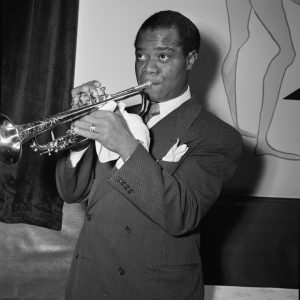
Louis Armstrong
SH: Jazz says a bunch of things. One of the things that jazz says is that, to understand where you are in the present day, you have to understand how the past led to this moment – what the lineage says about the present. Jazz is saying that you learn that, and you learn those conventions, learn those rules, so that you will understand where you will go next. Now, if that’s breaking the rules, great. If that’s remolding the rules, that’s great too. If it’s working within them, but finding a new avenue or path within them, that great as well. But jazz looks at the past not as something that you mimic it or imitate it, but that you learn from it and that you expound upon it. Jazz is built under the ideas of things like blues expression, this melding of major and minor, happy and sad. It’s built off of a rhythmic foundation of swing, a very flexible and inclusive group dynamic, and it’s built off of improvisation, the celebration of the individual voice. I think that’s a crucial thing to understand, because to balance improvisation, the celebration of the individual, your own voice of your own self, against swing, which is a group-focused dynamic, is a very difficult thing, and the best jazz artists master it. And it teaches us a lot about how you can function in a family, a community, a society. Understanding this vast complicated network we’re in – work within that, but also assert who you are as an individual.
RRX: Wynton Marsalis is the Managing and Artistic Director of Jazz at Lincoln Center in New York. I’ve seen him perform up here at Troy Music Hall, but I’ve never gotten down there. Can you give us a walk-through? The layout of the Center, or just the groove of the overall program? What’s one thing regular attendees might not know about it?
SH: So jazz at Lincoln Center was the first sort of large institution built with the idea of promoting and advocating for jazz specifically. So if people come to visit us in New York City, the facility that they would come to was completed in 2004. In it, there’s two concert halls. One’s called Rose Theater, modeled after La Scala in Milan, and the other one called the Appel Room, modeled after a Greek-styled amphitheater. We also have our jazz club, Dizzy’s Club, a beautiful venue. And then we have the Irene Diamond Education Center, which is where we do classes for everyone ranging from infants with their caregivers all the way through life learners. And the idea behind that is to create a vibrant ecosystem for this music, where we can be training up new audiences, new listeners – we could be training up new musicians. We can be offering professional opportunities to young professional jazz musicians who are looking to establish their work. And our concert season is built around that notion of establishing a sort of multilayered celebration of the art form. One thing people might not know is that our club, Dizzy’s, has done a really wonderful job over the years between its main evening sets at 7:30 and 9:30, celebrating national and international artists, against a late set where artists are brought in for an almost week-long residency to build a theme or concept, and that piece is so crucial for bands to gel and form identities. It’s something I really love. And then the other thing, when the season gets underway again, is that we tend to webcast a wide range of our shows to try to highlight what we’re doing to a global audience.
RRX: You lecture on jazz at a program in Delmar called Humanities in Lifelong Learning (HILL) which is under the direction of Jazz at Lincoln Center. Can you tell us a bit about the program? Does this program look to expand elsewhere in the Capital District, or has online learning made physical expansion moot?
SH: The group that we work with (Humanities Institute for Life Learners); that program is really remarkable. So yes, that’s a group that operates in Delmar through the Bethlehem school district. What they do are multiple terms of classes for their members, who are predominately retirees or people with flexible work schedules during the week. And it’s a wide range of classes that they offer. So we work with them each year to make sure that one of them is a jazz class. At this point, we’ve completed three years of classes with them. So the very first one, we did an overview class, a “Jazz 101” class, which is basically a survey-style class. The second year, we focused on Duke Ellington, and the third year, which we completed this past fall, was on Louis Armstrong. We’re working right now on a game-plan for the fourth year, which will be on Billie Holiday. And right now, the discussion is on how the logistics of that might work, depending on what the safest options are in terms of public health. We’ve been really happy and fortunate to partner with them; in fact, they’re the first group we’ve been able to do a partnership like that. We’re looking to do more work in that vein, because it’s really been an incredible thing to see. How that expands right now, it’s tough to say. Depending on how the next year shapes out will obviously inform what choices we make. But in terms of HILL, we love working with them. So anytime they want us up in Delmar teaching, we’re there.
Author
Staff
You may also like
Continue reading
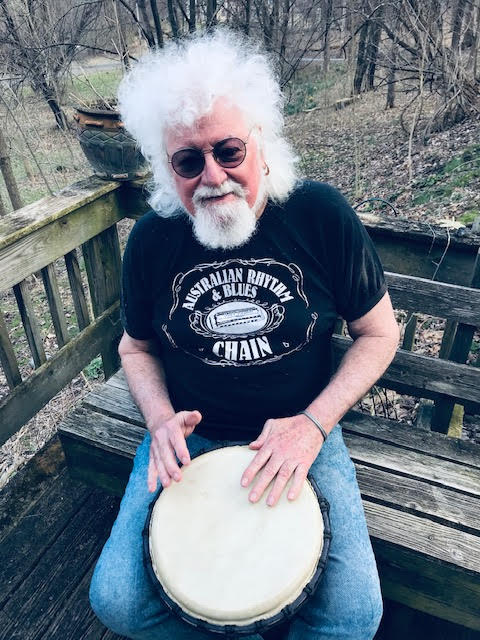
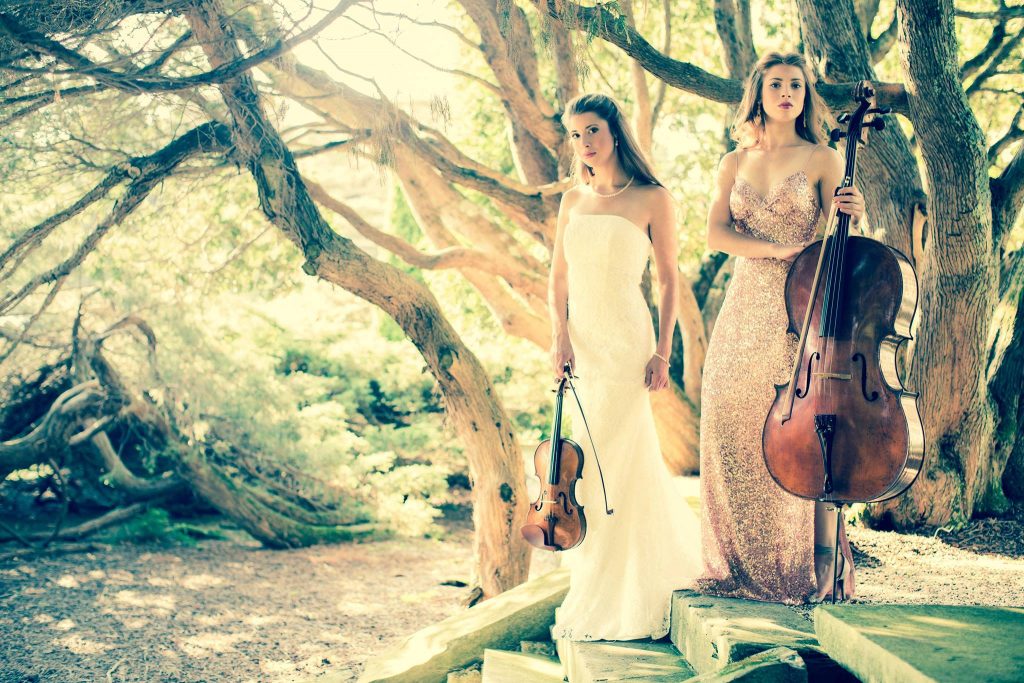
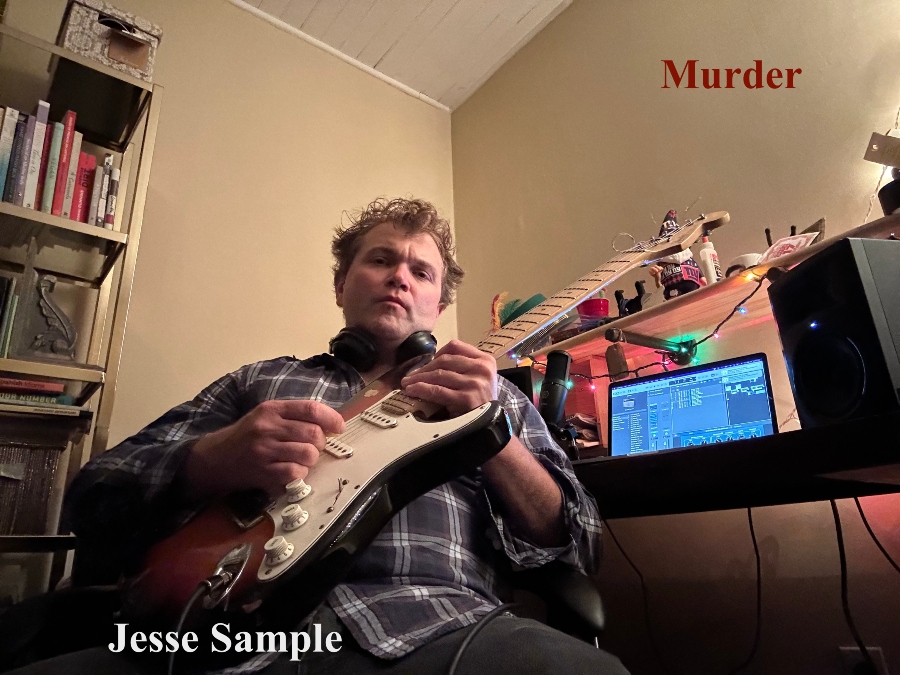
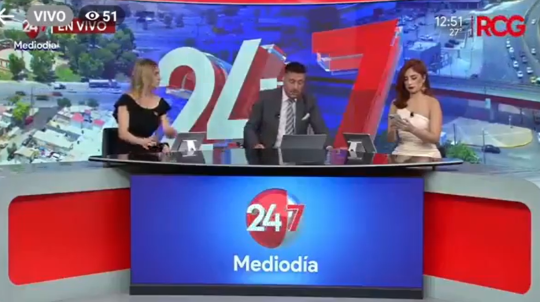
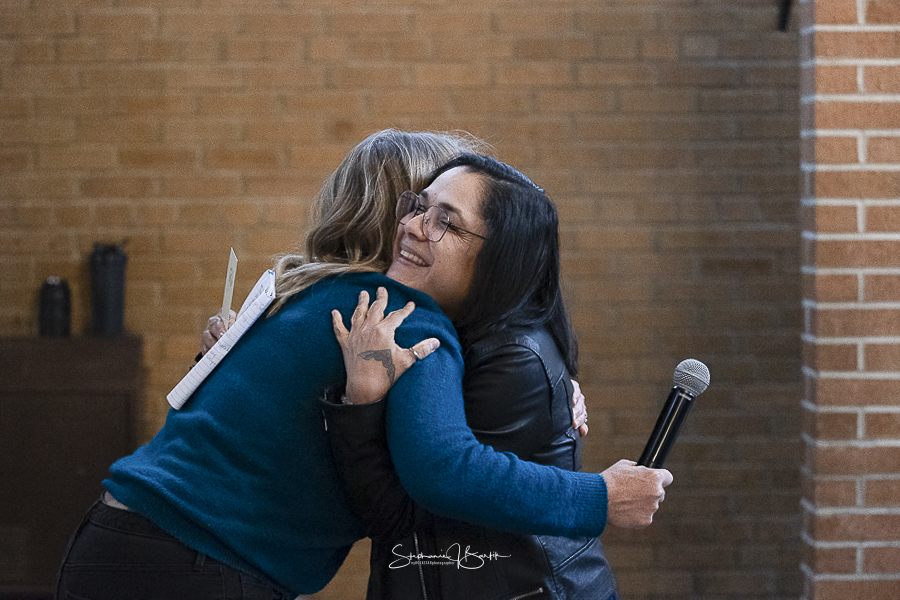
 RadioRadioX
RadioRadioX